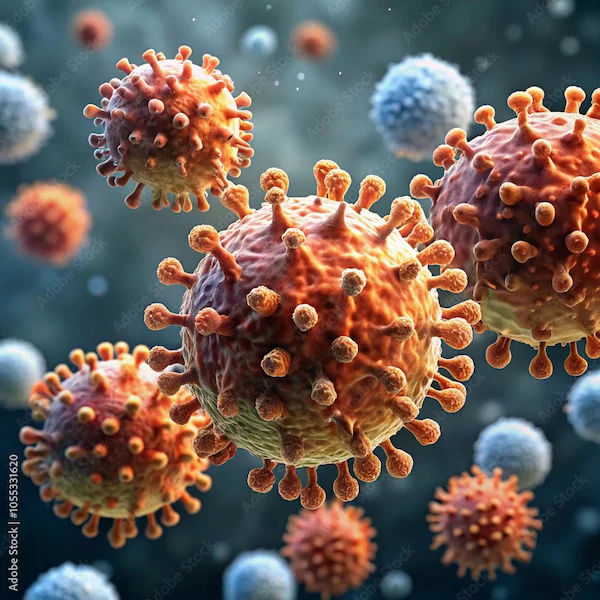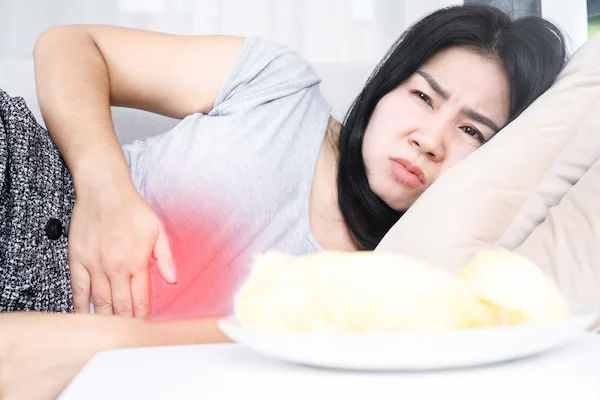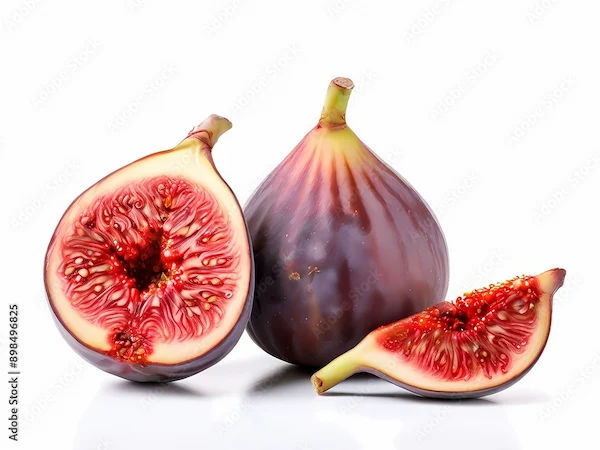How to Reduce C Reactive Protein?
Learn about C-reactive protein (CRP) which is used to assess inflammation levels in the body. Explore its causes if the levels are elevated and how to keep it within a normal range.

Written by Dr.Sonia Bhatt
Last updated on 3rd Jul, 2025
C-reactive protein (CRP) is a key marker used by doctors to assess inflammation levels in the body. It is produced by the liver in response to inflammatory signals and can be measured through a blood test. While CRP itself is not a disease, elevated levels of this protein indicate that there is inflammation happening somewhere in the body, which can be a sign of underlying health issues. Chronic inflammation is linked to several serious health conditions, including cardiovascular disease, diabetes, and autoimmune disorders.
For those looking to take proactive steps toward better health, understanding how to reduce CRP levels is essential. Fortunately, there are various ways to naturally lower CRP levels and improve overall health, from dietary changes to physical activity, stress management, and other lifestyle adjustments. This article will provide a detailed, practical guide on how to reduce CRP and the impact it has on your long-term well-being.
Understanding C-Reactive Protein and Its Role in Inflammation
CRP is part of the body's immune response and plays a critical role in fighting infections and injuries. It acts as a marker for inflammation, which occurs as a natural response to injury, infection, or disease. However, when inflammation becomes chronic, it can contribute to a host of health issues, including heart disease, obesity, diabetes, and even cancer.
CRP levels can be tested through a blood test, and doctors often use this measure to assess the risk of cardiovascular events like heart attack and stroke. High CRP levels indicate a heightened state of inflammation, which can damage blood vessels, increase plaque buildup in arteries, and contribute to insulin resistance, all of which can increase the risk of developing chronic diseases.
Consult Top General Physicians
Why Reducing CRP Is Important
Reducing CRP levels is not only about managing inflammation but also about preventing the diseases associated with chronic inflammation. Here’s why lowering CRP should be a priority:
Cardiovascular Health: Elevated CRP levels are associated with an increased risk of heart disease. Inflammation can damage the arteries, leading to plaque buildup and narrowing of the blood vessels (atherosclerosis), which is a major risk factor for heart attacks and strokes.
Type 2 Diabetes: Inflammation plays a significant role in the development of insulin resistance, a precursor to type 2 diabetes. By reducing CRP, you can improve insulin sensitivity and lower the risk of diabetes.
Joint and Muscle Health: Chronic inflammation can also contribute to conditions like rheumatoid arthritis, which causes pain, stiffness, and swelling in the joints. Lowering CRP can help reduce the symptoms of such inflammatory diseases.
General Health: Even if you don’t have a specific inflammatory disease, reducing CRP levels can improve your overall health, boost your immune system, and promote better recovery after physical exertion or illness.
Practical Steps to Lower C-Reactive Protein
Let’s take a closer look at some effective strategies that can help you lower your CRP levels and promote better health.
1. Adopt an Anti-Inflammatory Diet
Your diet plays a significant role in managing inflammation in your body. Eating a nutrient-rich, anti-inflammatory diet can help reduce CRP levels over time.
Omega-3 Fatty Acids: These essential fats are known for their anti-inflammatory properties. Foods rich in omega-3s, such as fatty fish (salmon, mackerel, sardines), flaxseeds, chia seeds, and walnuts, can help lower CRP levels. Studies have shown that omega-3 supplementation can reduce CRP in individuals with cardiovascular disease.
Fruits and Vegetables: A diet rich in colourful fruits and vegetables provides antioxidants and polyphenols that fight inflammation. Berries, leafy greens, tomatoes, and citrus fruits are particularly beneficial for reducing CRP. They contain compounds that help neutralise free radicals, which contribute to inflammation.
Whole Grains: Foods like brown rice, oats, quinoa, and whole wheat contain fibre, which helps regulate blood sugar and reduce inflammation. Studies have shown that whole grains can lower CRP levels, especially in individuals with metabolic syndrome.
Healthy Fats: Replace unhealthy fats like trans fats and saturated fats with healthy fats, such as olive oil, avocado, and nuts. Olive oil, in particular, contains oleocanthal, a compound that has been shown to reduce inflammation similarly to ibuprofen.
Spices and Herbs: Certain spices, such as turmeric (curcumin), ginger, and garlic, have well-documented anti-inflammatory effects. Adding these ingredients to your diet can help reduce CRP levels naturally.
On the other hand, it’s important to minimise or eliminate foods that can promote inflammation. These include:
Processed Foods: Foods high in added sugars, refined carbohydrates, and unhealthy fats (like those found in junk food and fast food) can increase inflammation and CRP levels.
Red and Processed Meats: These meats are often high in saturated fats, which can trigger an inflammatory response in the body.
Sugary Drinks: Sodas, sweetened teas, and other sugary beverages have been linked to increased inflammation, so cutting back on these drinks can be a smart move for reducing CRP.
2. Engage in Regular Physical Activity
Exercise is another powerful way to reduce inflammation and lower CRP levels. Regular physical activity has been shown to decrease CRP levels, improve cardiovascular health, and reduce the risk of chronic diseases.
Aerobic Exercise: Activities such as walking, jogging, swimming, or cycling help reduce systemic inflammation by improving blood circulation, reducing visceral fat (the fat that surrounds organs), and enhancing immune function.
Strength Training: Resistance training, including weightlifting and bodyweight exercises, can help build muscle mass and improve metabolism. This type of exercise has also been shown to lower CRP levels and reduce inflammation.
Aim for at least 150 minutes of moderate-intensity exercise per week or 75 minutes of vigorous-intensity exercise. This can be broken down into smaller sessions, such as 30 minutes of exercise five days a week.
3. Manage Stress Effectively
Chronic stress can be a significant contributor to elevated CRP levels. When stressed, the body releases stress hormones like cortisol, which can trigger an inflammatory response. Learning to manage stress can help reduce CRP levels and improve overall well-being.
Mindfulness and Meditation: Practices like meditation, deep breathing, and mindfulness can help activate the body's relaxation response, reducing stress and inflammation. Research has shown that mindfulness-based practices can lower CRP and other markers of inflammation.
Yoga and Tai Chi: These gentle forms of exercise combine movement, breathwork, and meditation. Studies have demonstrated that yoga and tai chi can reduce stress and lower CRP levels, particularly in individuals with chronic inflammatory conditions like rheumatoid arthritis.
Adequate Sleep: Poor sleep or sleep deprivation is associated with increased inflammation and elevated CRP. Aim for 7-9 hours of quality sleep each night to support your body’s natural healing processes and reduce stress-induced inflammation.
4. Maintain a Healthy Weight
Obesity is a significant contributor to chronic inflammation and high CRP levels. Excess fat, particularly visceral fat, can secrete inflammatory substances that elevate CRP. Losing excess weight through a combination of a healthy diet and regular exercise can have a profound impact on reducing CRP and improving overall health.
5. Consider Medical Treatment
In some cases, reducing CRP may require medical treatment, especially if underlying conditions are contributing to inflammation. If lifestyle changes alone are insufficient, you may need to consult with a healthcare provider for personalised recommendations.
Medications: Nonsteroidal anti-inflammatory drugs (NSAIDs) like ibuprofen can temporarily lower CRP levels by reducing inflammation. However, these should be used cautiously and under the guidance of a healthcare provider, as they can have side effects with long-term use.
Statins: Statins, commonly prescribed for high cholesterol, have been shown to lower CRP levels in individuals with cardiovascular disease. Your doctor may recommend statins if your CRP levels are high and you are at risk for heart disease.
Supplements: Some people benefit from anti-inflammatory supplements such as omega-3 fatty acids, turmeric (curcumin), and ginger. Always consult a healthcare provider before taking supplements, especially if you are on other medications.
Conclusion
C-reactive protein (CRP) is a valuable biomarker of inflammation in the body, and high CRP levels are associated with a variety of chronic diseases, including cardiovascular disease, diabetes, and joint disorders. By adopting a healthy lifestyle that includes an anti-inflammatory diet, regular exercise, stress management techniques, and maintaining a healthy weight, you can naturally lower CRP levels and reduce your risk of developing chronic diseases. Consult with a healthcare provider if you have concerns about your CRP levels.
Consult Top General Physicians
Consult Top General Physicians

Dr. Swagata Sircar
General Physician/ Internal Medicine Specialist
8 Years • MBBS, MD General Medicine
Kolkata
HealthYou Speciality Clinic & Diagnostics., Kolkata
(50+ Patients)

Dr. Dhanraj K
General Physician/ Internal Medicine Specialist
25 Years • MBBS, MD Internal Medicine - Osmania Medical College, Hyderabad
Hyderabad
Apollo Hospitals Jubilee Hills, Hyderabad
(375+ Patients)

Dr. Anand Ravi
General Physician
2 Years • MBBS
Bengaluru
PRESTIGE SHANTHINIKETAN - SOCIETY CLINIC, Bengaluru

Dr. Swarna Deepak K
General Physician/ Internal Medicine Specialist
17 Years • MBBS: MD (Internal Medicine) MRCP (UK), EDIC (European Diploma in Critical Care), IDCCM, IFCCM (Critical Care), FID (Royal Liverpool Academy)
Hyderabad
Apollo Hospitals Jubilee Hills, Hyderabad
(350+ Patients)

Dr. Harshendra Jaiswal
General Physician/ Internal Medicine Specialist
12 Years • MBBS , MD (General medicine)
Kolkata
108 DHANA DHANVANTARI Clinic, Kolkata
(25+ Patients)
Consult Top General Physicians

Dr. Swagata Sircar
General Physician/ Internal Medicine Specialist
8 Years • MBBS, MD General Medicine
Kolkata
HealthYou Speciality Clinic & Diagnostics., Kolkata
(50+ Patients)

Dr. Dhanraj K
General Physician/ Internal Medicine Specialist
25 Years • MBBS, MD Internal Medicine - Osmania Medical College, Hyderabad
Hyderabad
Apollo Hospitals Jubilee Hills, Hyderabad
(375+ Patients)

Dr. Anand Ravi
General Physician
2 Years • MBBS
Bengaluru
PRESTIGE SHANTHINIKETAN - SOCIETY CLINIC, Bengaluru

Dr. Swarna Deepak K
General Physician/ Internal Medicine Specialist
17 Years • MBBS: MD (Internal Medicine) MRCP (UK), EDIC (European Diploma in Critical Care), IDCCM, IFCCM (Critical Care), FID (Royal Liverpool Academy)
Hyderabad
Apollo Hospitals Jubilee Hills, Hyderabad
(350+ Patients)

Dr. Harshendra Jaiswal
General Physician/ Internal Medicine Specialist
12 Years • MBBS , MD (General medicine)
Kolkata
108 DHANA DHANVANTARI Clinic, Kolkata
(25+ Patients)




